Muay Thai Roundhouse Kick Technique Tips
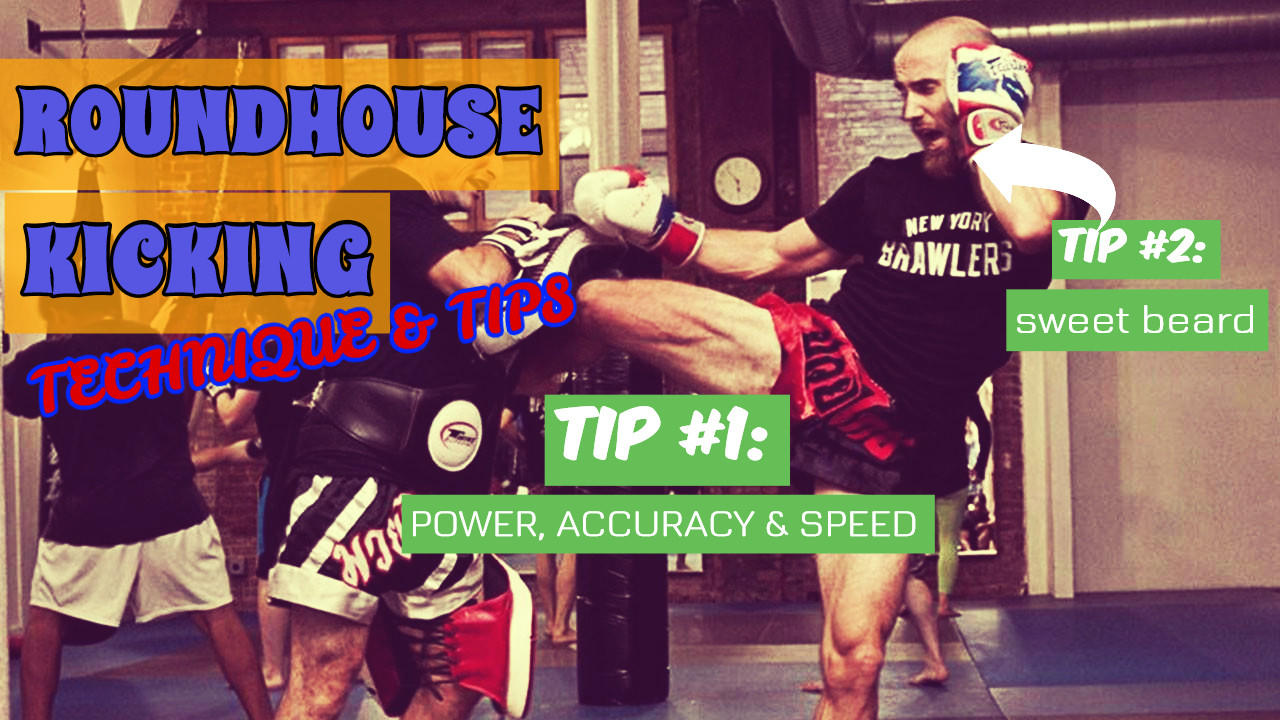
THROWING A MUAY THAI ROUNDHOUSE KICK - PROPERLY
By Sean Fagan
Needless to say, the Muay Thai roundhouse kick is what makes Muay Thai one of the most deadliest martial arts in the world.
However if you throw a Muay Thai kick with sloppy technique you be less efficient (which makes you more tired) and you will leave openings in your defense.
Even though the roundhouse kick is one of the most basic Muay Thai techniques you’ll first learn when you step into a gym, it takes a lifetime to perfect. I’ve been training Thai boxing over 10 years now and still know that there is plenty of room to improve my kick technique to add more power and speed to it.
How NOT To Muay Thai Kick: 8 Common Mistakes
Basic Kick Technique Tips
- Be loose! Your leg should almost be completely dead weight that is guided by your hips, shoulders and torso.
- Push up on the balls of your post foot. This will help you generate more hip action and be more free to rotate through. If you are flat footed you los
...
Fight Week Diet & Nutrition For Muay Thai

MUAY THAI FIGHTER DIET, NUTRITION & WEIGHT CUTTING PLANS
By James Bee – JBFS
The following post is by James Bee who works with professional Muay Thai fighters as nutritional coach.

I get a lot of emails from people asking questions about what to eat and drink during fight week preparation. So I felt it was necessary to write some advice answering these important questions about Muay Thai diet and nutrition to help optimize performance for your big week. If you’re cutting weight, there are some essential weight cutting tips in this post to help reach that goal too, so keep reading.
Below you’ll find a breakdown of the important macronutrients like proteins, fats and carbohydrates. I’ve also added 2 different meal plan strategies, one plan is for fighters who are weight cutting and one is for maintaining weight. I’ll talk about water intake, important supplements, and sauna strategy for shedding those last couple kgs if needed.
First point to note, the real important thing is to k...
Muay Thai Southpaw Technique Tutorial

SHARPEN YOUR SOUTHPAW WITH THIS SPARRING BREAKDOWN
By Sean Fagan
What’s up, guys! Pro Muay Thai fighter Sean Fagan here with a tutorial video that I put together special for my left-wing brothers, my southpaw soldiers-in-arms.
I made this video after a lot of time spent reading comments on social media that complain about the lack of video procedurals breaking down and instructing how to throw combos from southpaw stance. Sure enough, a cursory Google search is showing me a lot of stuff on how to beat southpaws, not fight as one!
This shouldn’t come as a surprise to you. How many southpaw fighters do you know of? Let’s rattle off a few of the greats:
Samart Payakaroon, Manny Pacquiao, Saenchai, Anderson Silva, Orono Wor Petchpun…
What makes them great? In part, it was the sheer rarity of southpaw fighters in sports. One source tells me that in MMA, only 17% of fighters routinely employ a southpaw stance. That’s worse than a 4:1 ratio when compared with orthodox fighters.
Of co...
5 Muay Thai Drills For The Heavy Bag
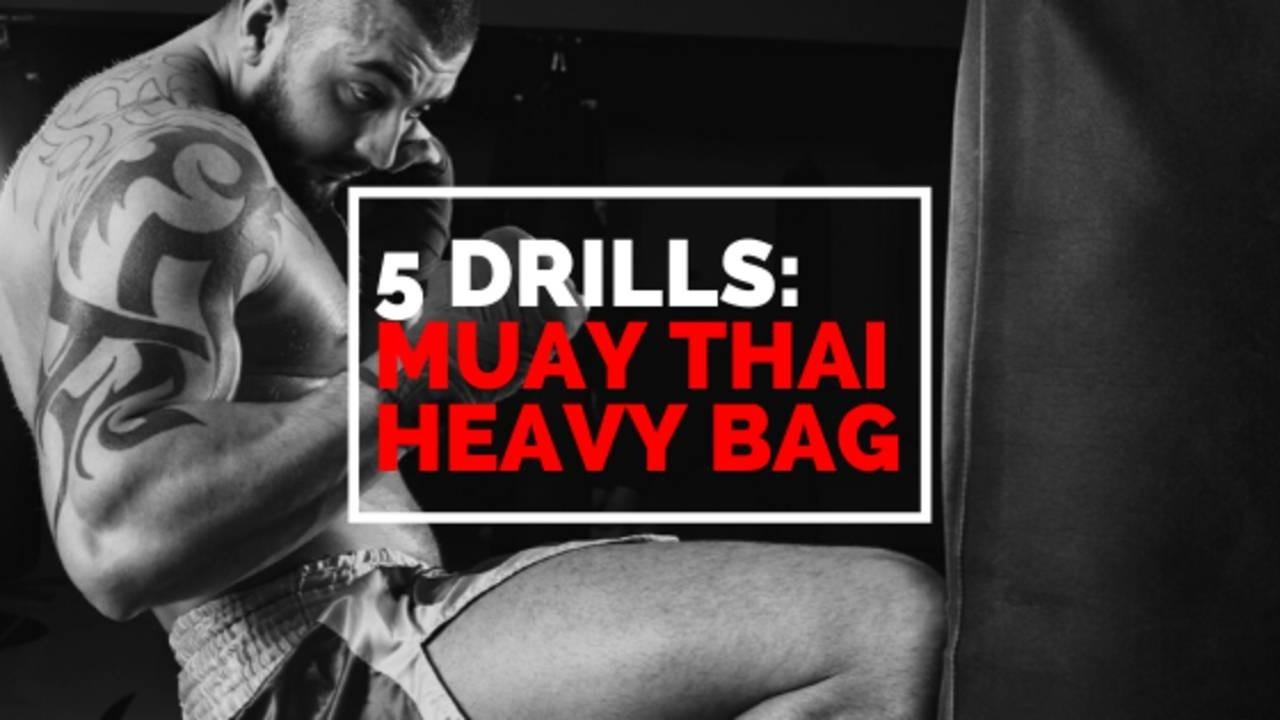
SMASH THE HEAVY BAG WITH THESE MUAY THAI DRILLS
By Sean Fagan
The heavy bag is undoubtedly an important piece of training equipment.
Heavy bag drills not only build up endurance and strength but hone technique and help one develop and perfect combinations.
There are many useful exercises, but here is a selection of five to experiment with during the next training session.
WATCH: Best Beginner Heavy Bag Drills For MMA, Muay Thai & Kickboxing
#1: 100 Push Kicks/Teeps
Focus on accuracy and control.
When you kick, time each one with the backswing of the bag so that you fall into a rhythm. View the bag as an opponent: don’t let it gain the advantage and follow-up each kick with another before the bag can swing back.
Keep your kicks sharp and quick during each rep. Try to land each one in the same spot so that the bag swings back and forth rather than all over the place.
Alternate your stance after each rep. Take your time between reps if you need to, but maintain speed wh...
Muay Thai Abs & Core Workouts
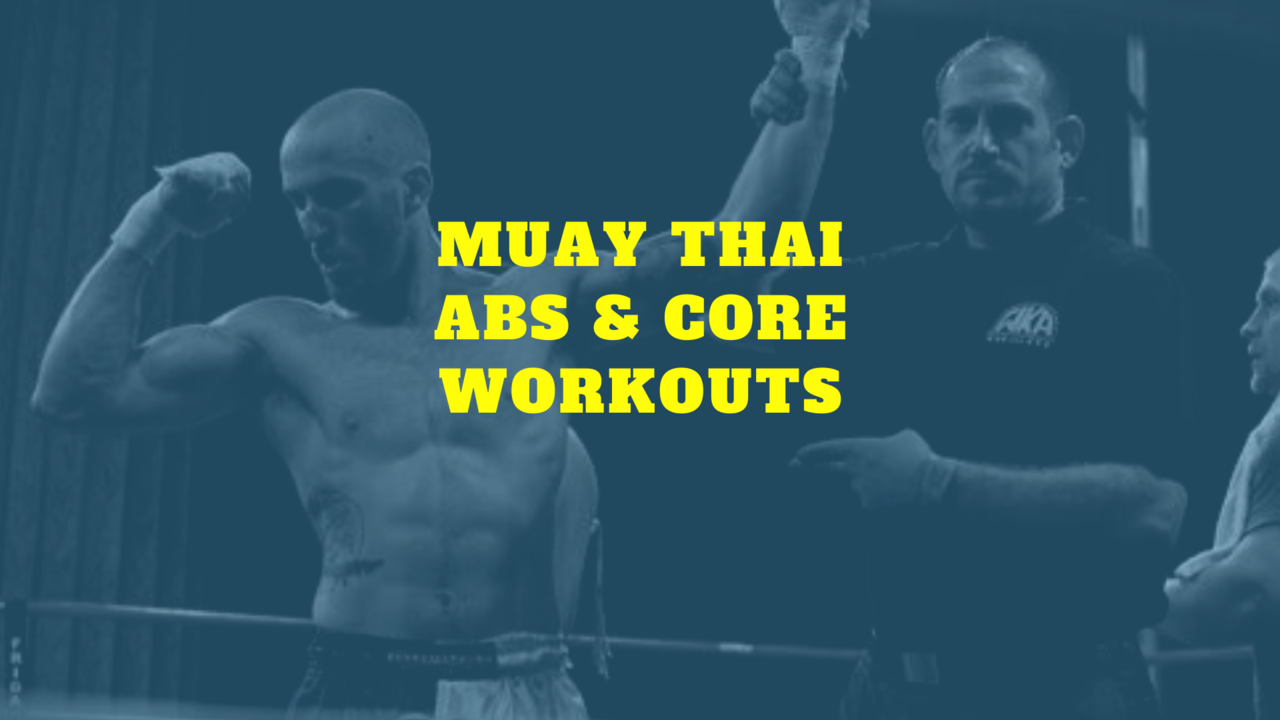
INTENSE AB EXERCISES & CORE CIRCUIT WORKOUTS FOR YOUR NEXT MUAY THAI SESSION
By Sean Fagan
Abs workouts and core conditioning for a fighter means much more than just developing a six-pack. You must focus on training your abs to help you improve movement patterns, strength, and overall performance.
 Obviously, your core is extremely important as a Muay Thai fighter. If you have a strong and stable core it will lead to more powerful kicks and punches, better footwork, more efficient clinching, and the ability to absorb more punishment.
Obviously, your core is extremely important as a Muay Thai fighter. If you have a strong and stable core it will lead to more powerful kicks and punches, better footwork, more efficient clinching, and the ability to absorb more punishment.
You must understand that improving your abs and core region is much more than crunches. In fact, I’m not a big advocate of crunching but I do understand Muay Thai and combat fighters are different and some crunching exercises can be performed.
Today I am going to share two Core and Abs Finisher workout circuits that I use with my fighters at the end of our conditioning for fighters session. These are short, but intense Muay Thai abs workouts and core ...
The Art Of Losing: My Thoughts After a TKO
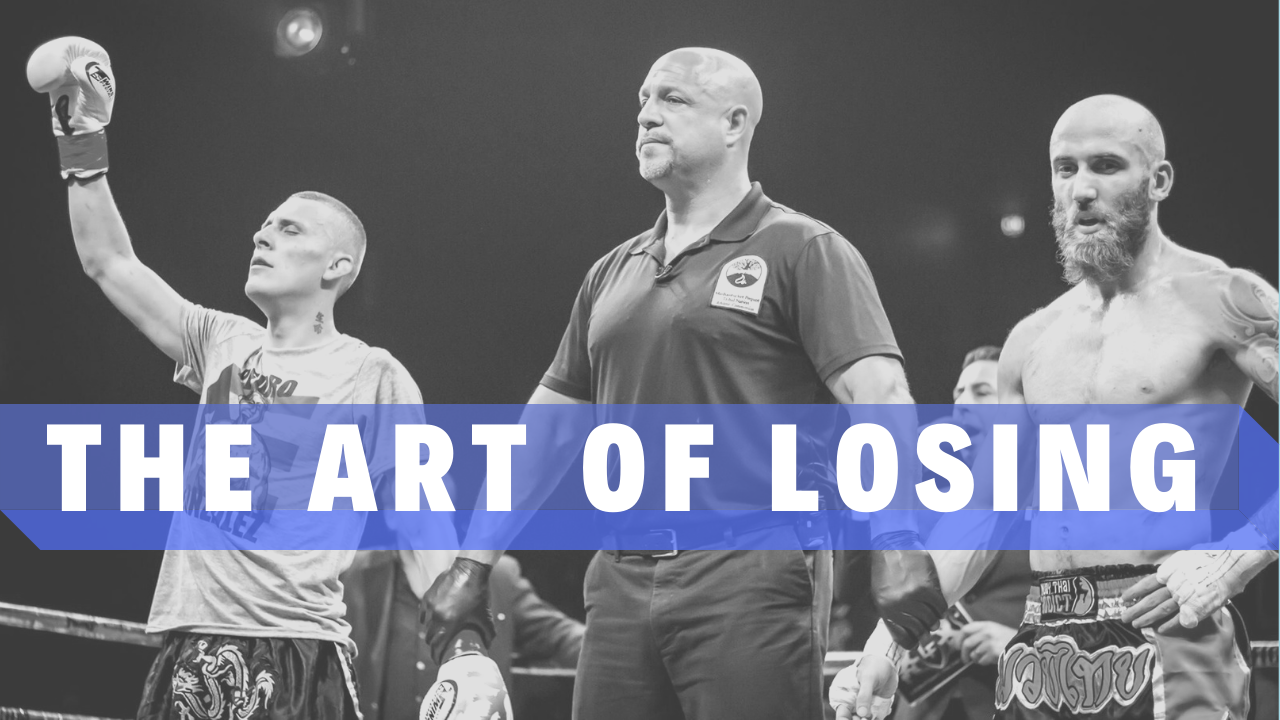
LOSING SUCKS BUT IS ABSOLUTELY NECESSARY TO GROW
By Sean Fagan
It’s fight night. You feel more ready than ever to step into the ring and you feel confident about coming away with another hard-earned win. How could you not feel that way after all the hard work and sacrifices you’ve made, right?
You’ve put rigorous hours in the gym banging the heavy bag, hitting pads, and sparring tough, experienced guys.
You’ve obsessively watched your diet for weeks making sure you were simultaneously losing weight, eating healthy and getting enough nutrients into your body to train hard.
You’ve visualized the fight over and over and over and over again replaying what felt like every possible scenario that could happen in the context of a fight.
You just finished warm-ups. You take the walk down the hallway towards the ring. You start to feel the energy of the crowd and you hear the music blasting it’s bass loudly through the arena. Nothing is really going through your mind anymore, just that you...
How To Get a Sak Yant Tattoo In Thailand

WHAT IS SAK YANT & HOW DO YOU GET ONE?
By Angela Chang
Sak yant is extremely popular in the Muay Thai community, namely with those who have visited Thailand. With geometric shapes and depictions of animals and gods, sak yant is as beautiful as it is painful to receive.
Who does sak yant?
Sak yant are done by monks or arjans who have studied the art for a very long time. (They are also usually longtime ex-monks.) Monks are not allowed to make profit off doing the tattoos as part of their code, so going to a temple to get it done is always donation-based. One of the most popular temples to get sak yant done is Wat Bang Phra.
If you go to a temple, be sure to dress appropriately by covering your legs and shoulders. Never touch the monk, especially if you are a woman. Do kneel ...
1-V-1: Peter 'The Gentleman' Crooke

GREAT BRITAIN'S BEST MUAY THAI HERO
By Kyle Gilmore

ALL IMAGES COURTESY OF PETER CROOKE VIA FACEBOOK
Using just a few words, how on earth can one begin to properly describe a Muay Thai champion? Luckily for one such champion, it can be done with the use of a single word — gentleman.
Given that nickname when he fought in his Super League days, Peter “The Gentleman” Crooke has left a mark on the Muay Thai and kickboxing worlds that will never be forgotten. He accomplished this all while being a full-time police officer and competing with a massive injury early in his career, leaving him with no ACL in his left leg.
Crooke amassed titles in SIMTA and WAKO Pro (being the champ in both the Super Welterweight and Light Middleweight division), as well as becoming the WMTC champion and fighting the top fighters in his division the whole time.
Crooke, born in Wombourne, England and now retired from the fighting world, entered Muay Thai much like his friend Ole Laursen, in that it was a ...
SURPRISE! Muay Thai Is Hard
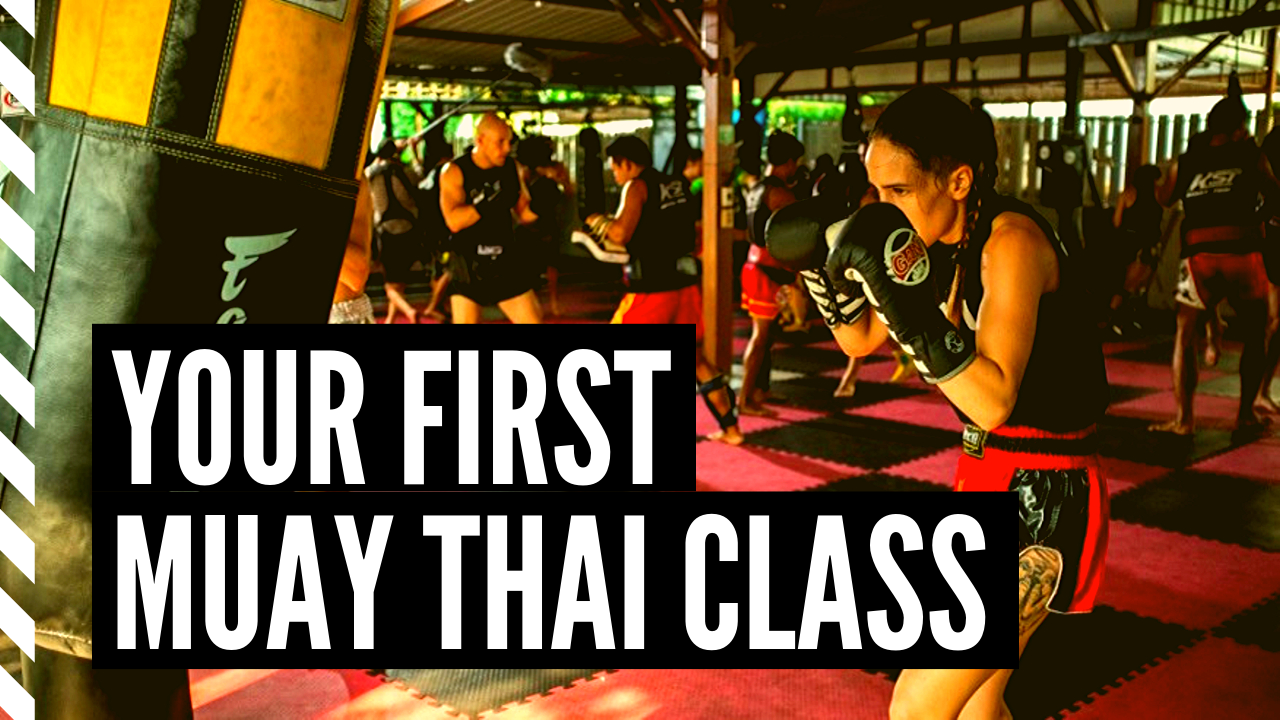
SPOILER ALERT: YOUR FIRST MUAY THAI CLASS MAY SUCK.
By Rosy Lynch

There are some rather jarring differences between spin group at the local fitness club and a typical Muay Thai class.
Besides the obvious differences, there is an entirely different level of commitment and tenacity required to train in Muay Thai.
The first class will set a high bar for your tolerance.
If you’re feeling a bit unsure about just picking a gym and turning up to a session, here are some tips on what you can expect from your Thai boxing experience:
Class Structure
A typical beginners’ class is likely to include most of the following:
- You’ll warm up – Maybe skipping, or shadowboxing (yes, you’ll feel like an idiot but I promise nobody else cares), or a run from the gym.
- You’ll drill – The bulk of a beginners’ class is likely to be focused on practicing techniques and combinations on Thai pads and/or the heavy bag. You’ll probably be holding pads for a partner for some of the class – take this ...
7 Elbow Strikes You Need To Master
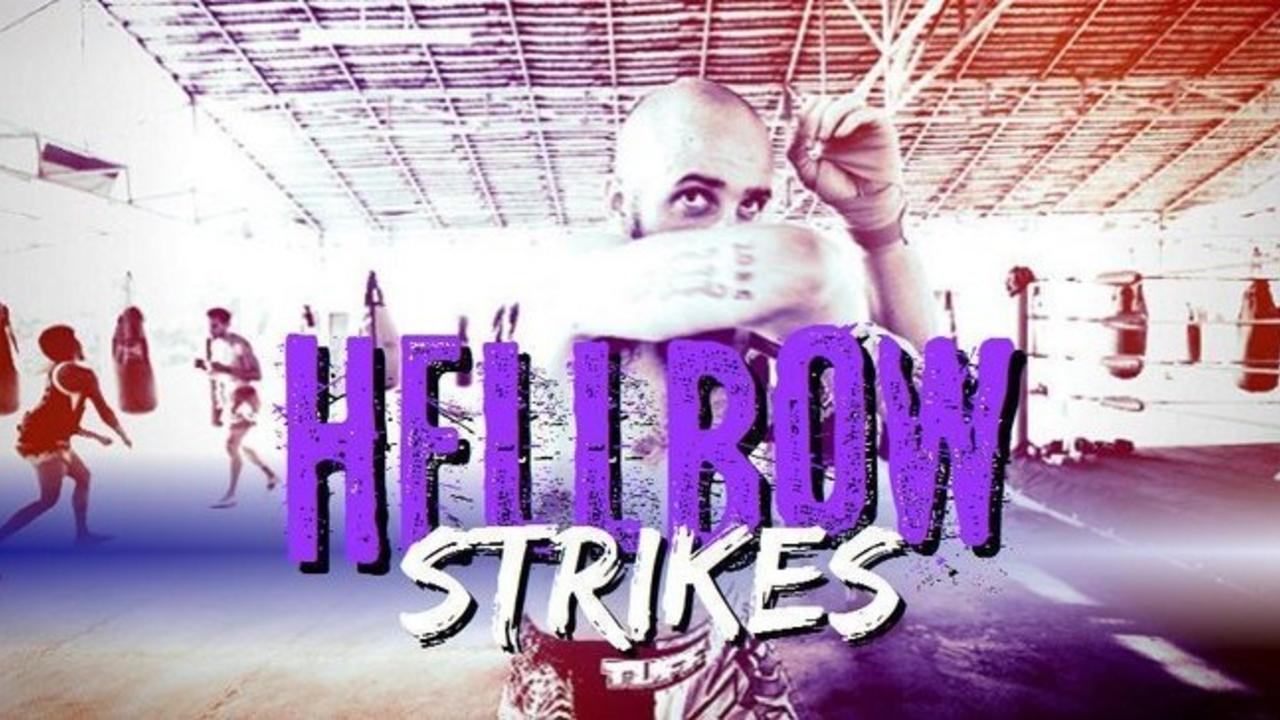
SHARPEN YOUR ELBOWS WITH THESE 7 TECHNIQUES

What is not to like about elbows? They’re deadly daggers yet also devastating clubs. These so-called “hellbows” are what makes Muay Thai stand out.
Elbows are one of the tools that, if your opponent is unskilled with them, could result in their complete obliteration. If you’re one of the fellas that isn’t as skilled with elbows, this post is for you.
Like punches, there’s a basic vocabulary that you must be familiar with before you can add in the grammar (in other words, striking principles – e.g. setups, angles, etc.).
In this Evolve MMA video, Kwankhao Mor. Rattanabandit, a former Rajadamnern stadium champion, will demonstrate seven elbow strikes you must know.
ELBOWS & GAUGING DISTANCE
Now that we’ve got a basic vocabulary, let’s start putting some sentences together.
Like in all strikes, distance is the all-important factor. There’s no point of throwing an elbow if you’re standing at a kicking distance. So we mus...





